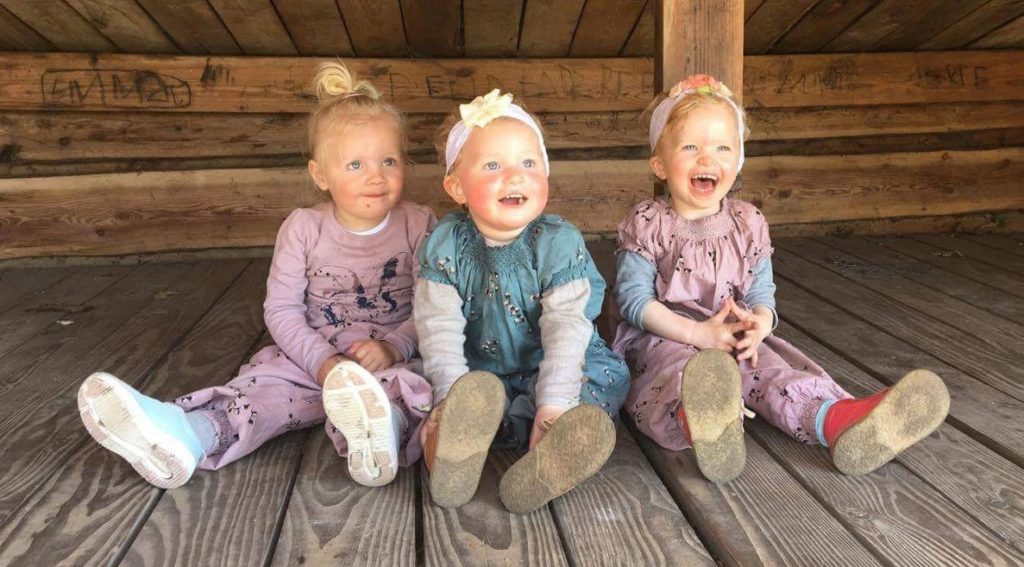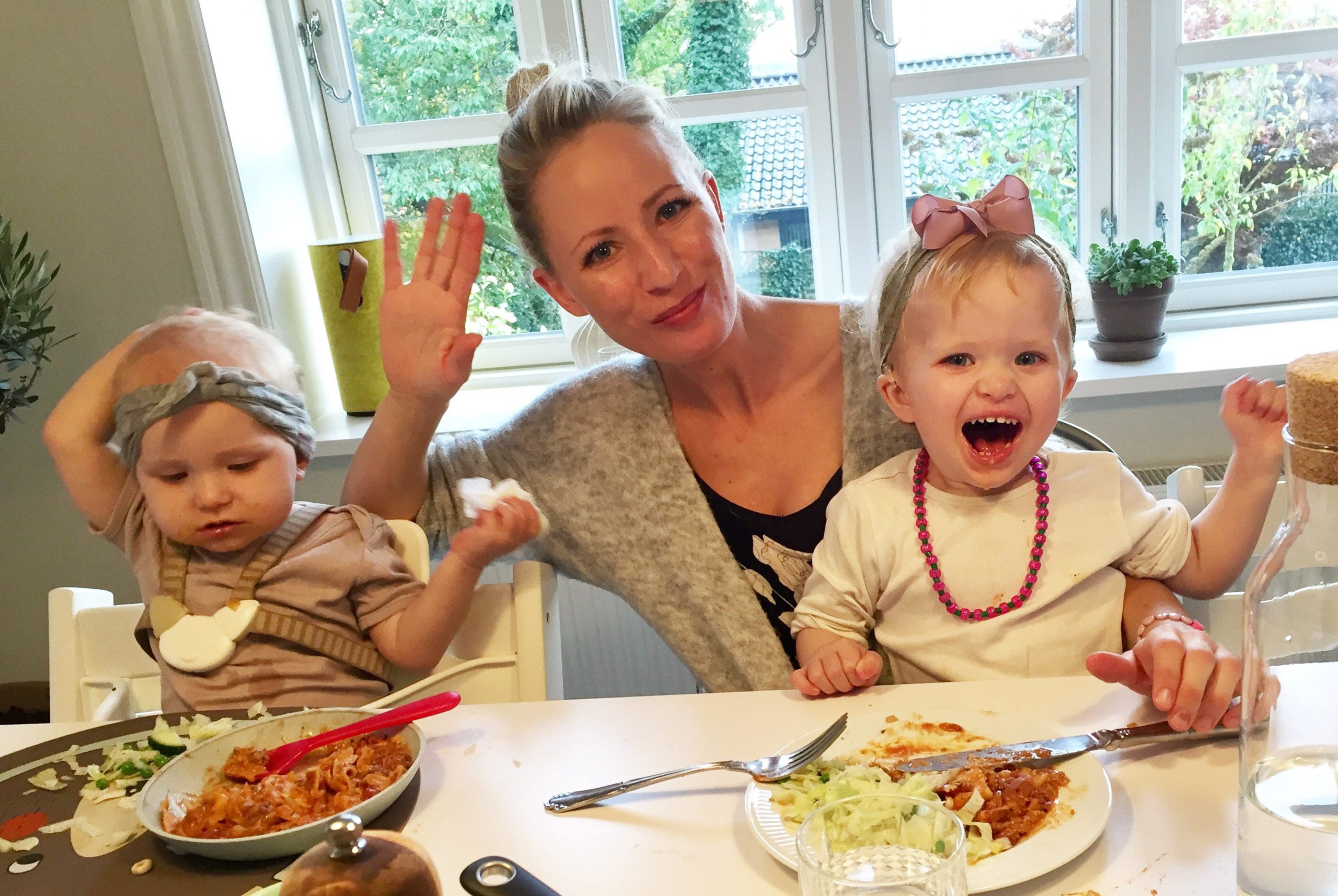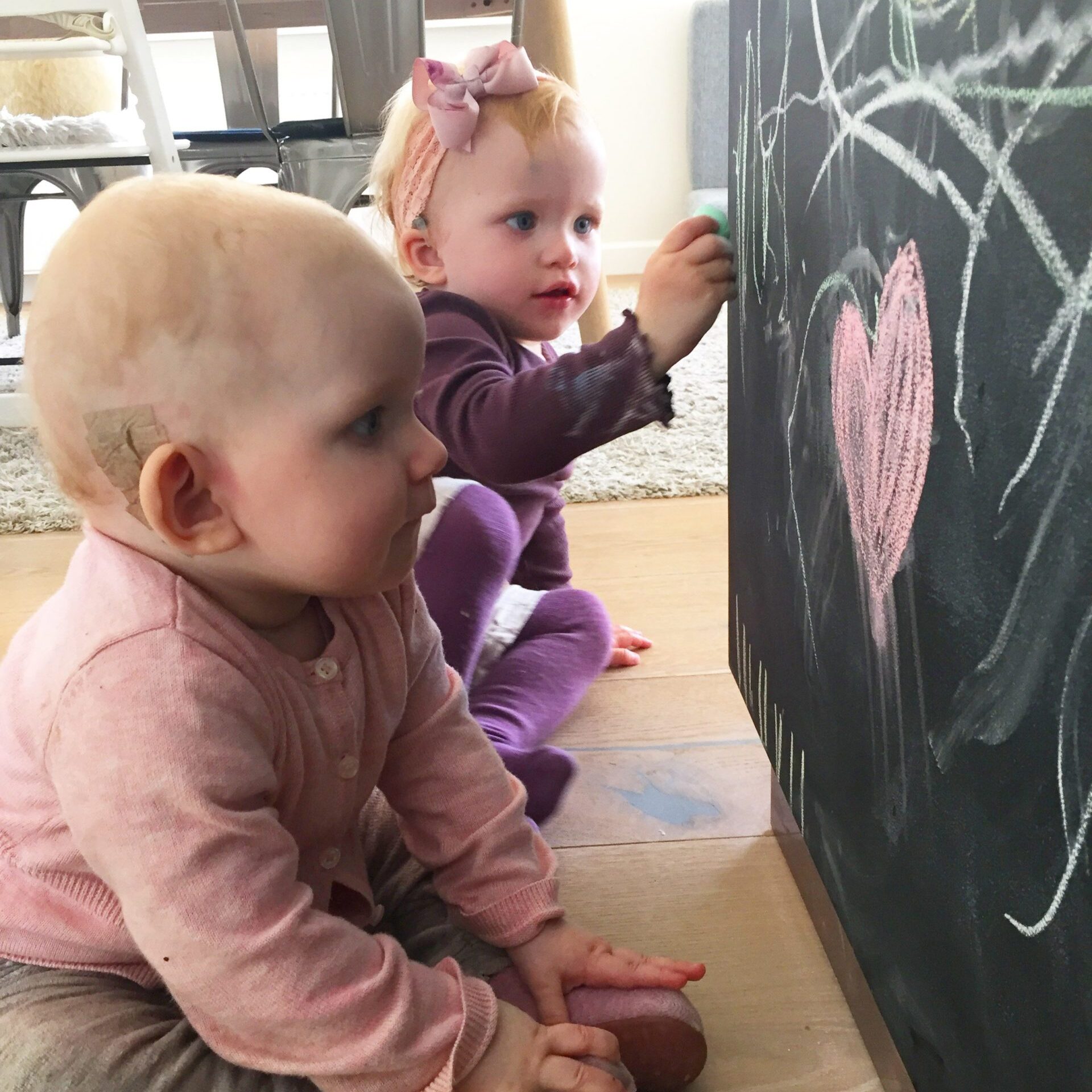Learning good language skills early in life helps develop the child’s sence of community and ability to form friendships later in life.
Although research studies focus more and more on language training being teachers’ responsibility in kindergarden and pre-school, we believe that parents can do so much more
Language is everything in communication
Most parents are eager to hear their child’s first word. Will it be mum, dad, car, cat or something else?
As soon as the child replaces pointing with a few words and sentences, communication instantly becomes musch easier. Suddenly the child can express their needs in a way, we previously had to make guessings about, pulling out everything from pacifiers, rattles, bananers or diapers!
Language is everything.
But language doesn’t just develop out of nowhere. When Alberte had a fall outside and cried out “damn it!”, it was quite a milestone in her language development. It showed us, that she had overheard the expression somewhere and learned how to put it into context at the same time. Just 2 and a half years ago, this would have been impossible for her to do. She was over a year behind according to her age. Read the entry about overhearing here.
Today, Alberte’s language understanding is way beyond her years and everytime she uses a swear word, we are bursting with pride – allthough it’s not quite right. We now know, that apart from her advanced cochlear implant, we ourselves are the main reason for why her language is so well developed. We take great pride in her language development, every time she presents a new word or phrase.

A daily prioritisation
Alberte welcomed her baby sister, Ella and we were now the parents of two hearing impaired children. We have had to structure our day completely differently, where sound, listening environment and language training all are prioritised.
Our experience has proved, that awareness, intimacy and involvement are keys to developing the child’s language skills faster than any other method.
And so we started CIHA – a place to inspire parents to play with language and find developmental toys for fun leaning. Child care workers and pre-school teachers play a big part of a child’s language development but the real influence lies in the immediate family.
Professor in speech therapy, Trine Kjær Krogh descibes how language training can be a natural part of your everyday life in many different ways:
“A good way for educational language play, is to involve your children in everyday chores around the house. In this way, children will automatically focus on using their language. You should think of it as being a lovely way to spend time together, and that chit-chatting while preparing dinner is just as benefitial as language-based games and books.”
Language begins at birth
The infant child can hear from inside the womb, already at 20 weeks. And communication and language starts at birth, where parents play an essential part of the child’s language development. New research shows, that early conversation between parents and child, strengthens language development significantly.
It is not always about teaching the child a lot of words for animals, colors, shapes and sounds. It is about talking with your child instead of to your child. The infant child will be able to answer you with babbles and facial expressions.
Professor in speech therapy Trine Kjær explains: “When you exhange babbles with your baby, it strengthens the ability to take turns – you say something and then I say something. The child will gradually learn language through conversation. At 8 months, the child will recognise many words, allthough they are not able to say them out loud yet”.
Parents responsability
When Alberte and Ella where one year old, they underwent Cochlear Implant surgery, so they would be able to hear for the first time, just like their peers. Being a year behind in their language development, we faced an enormous task and we started an AVT – programme, which is a special traing programme for hearing impaired children. It was made very clear, that parents are essential for giving the child age-appropriate language skills. We, as parents have the overall responsability for developing the girls’ language, and without motivation and prioritising the exercises every day, they would not be able to make up for lost time.
I feel as if the first year of each of our girls’ lives, was one long waiting for the day they could have Cochlear Implant surgery.
First then, could we start “working” on the girls’ language and teach them everything, we know they were behind in. We were met with high expectations and indeed, we had high expectations to ourselves. As parents to hearing impaired children, we feel a great responsability for our children to do as well as they possibly can.
Gradually it became natural to think language training into eveything we do. When the girls had their first anual check-up, it turned out that they were actually ahead of their peers. We had essentialy caught up with 1 year and 20 months of hearing and language development. In that situation, of course we were bursting with pride over our girls.
Playing is a part of everyday life
Playing and language training have become a natural part of our family life and we automatically think of language stimulating activities. How the girls continuously can learn new words by doing a puzzle or learning shapes and prepositions by placing little items in a box.
This is why we started CIHA – to write about and share our experiences and challenges of thinking language training into a busy schedule. We are just as any other family with young children but everyday language training has been essential for Alberte and Ella to reach an age-appropriate level. And for them to have the life they want in the future.
Trine Kjær: ” Children, that reach a high level of language skills at an early age, will find it easier to make friends and learn to read in school. If the child is behind in language development, it is harder for them to interact socially and benefit from school education.
Inspirational advice for parents
Playing is a natural part of everyday life. And the close relation and attentiveness, that only parents can give, are the most important factors for successfull language training and development. Therefor, it all makes perfect sense to give your children the very best basis for developing good language skills early in life.
Just think, if our two hearing impaired girls can reach this level, by thinking language and play into our everyday life, just imagine how far normal hearing children can go?
This is our idea behind CIHA. A universe for parents to find inspiration for fun language training. We wish to give parents a loving nudge in the direction of how you can play together, while strengtening your child’s language skills at the same time.
With CIHA, it is our sincere hope to inspire parents to make both play and language training a natural part of your everyday life, for the benefit of both children and grown-ups.


Leave a Reply